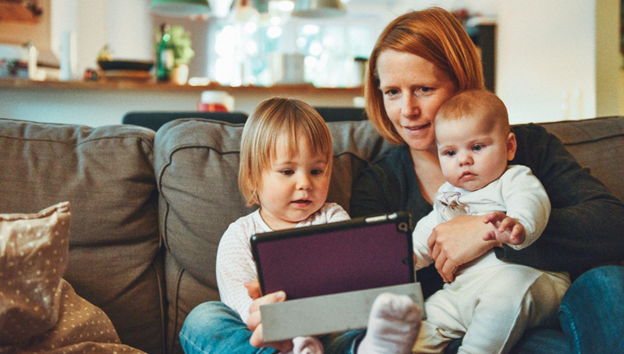
As we steadily step into an era dominated by artificial intelligence (AI), it’s hard not to wonder about its impact on one of the most fundamental aspects of human existence: family life.
This article aims to deconstruct the ways in which AI is currently intertwining with our home lives, and takes a speculative yet educated glance at how this association might further evolve in the near or distant future. Your families are changing. Read on to find out how and why!
How AI Will Impact Family Life (Now and In the Future)
Artificial intelligence is becoming a crucial element of our lives. This article explores how AI is impacting us and will continue to impact family life both currently and in the future.
AI-Driven Entrepreneurship: Opportunities for All
AI makes it possible for anyone to start a business like never before. It allows mothers to work from home and enables everyone to begin an AI side hustle earning 1000s a month. This guide explores potential business opportunities you can start today.
Morning Routine
With AI, our morning routine could be completely streamlined. From the moment we wake up, smart technology can turn on the radio, increase or decrease the temperature in the house, or open the curtains. Smart systems will know to do this based on our rising heart rate.
Both parents and children could adjust their AI tools to suit their personal needs. For example, parents could rig the television to turn to a specific station or to read news they care about. Children could receive personal higher education lessons from their phones or monitors.
Personalized Schedules
Speaking of personalization, one of the best things about AI and machine learning is its ability to adapt to the user’s personal needs. We’re already seeing this application in medicine, where AI is being used to create work schedules. This has led to a reduction in physician burnout.
The applications for personalized schedules are endless, but it’s especially helpful for people managing their routines at work or school. On a personal level, AI assistants will keep track of appointments and to-do lists and create the most efficient routines based on our behaviors.
Family Planning
AI could greatly impact family planning from start to finish. AI algorithms could be capable of analyzing patient lifestyle factors, medical records, and lifestyle goals to determine the best contraception method for them. AI chatbots could provide on-demand support for conception.
Predicting and monitoring fertility will also be revolutionized by AI. While not AI, this pregnancy test calculator at Flo can help you determine the best time to take a pregnancy test. But once a mother becomes pregnant, AI can potentially then be used to analyze the chances of pregnant patients having a safe delivery and possibly help them avoid severe complications.
Wellbeing Support
While the thought of AI offering emotional support to families seems far-fetched now (and dangerous based on recent events), there’s a lot of potential here. Currently, AI can be used as an effective assisting tool, but it shouldn’t be used, now or ever, to replace humans entirely.
With that said AI is already a mainstay in healthcare and isn’t going away anytime soon. The digital primary physician is right around the corner, thanks to Telehealth. It’s likely these doctors will use wearable technology to access patient data and make predictions in real-time.
Entertainment and Leisure
It’s highly unlikely that AI writing programs can truly replace humans, but AI can suggest TV shows, movies, and games based on our preferences. Every streaming site, including Netflix, uses algorithms to make sure your experience is personalized and tailored to your needs.
What’s really interesting about AI is how it can bring more foreign media into our homes using generative AI captioning. Soon, generative game design will allow us to actually speak to characters, meaning they can make our leisure time more interactive and entertaining.
Autonomous Chores
House chores can take a massive chunk out of someone’s day, but a recent study has predicted that AI will reduce time spent on domestic tasks by 39% before 2033. In this same study, it stated that time spent washing dishes will decrease by 47% and cleaning and cooking by 46%.
Even now, we have plenty of ways to clean our houses with robots. The Roomba is a prime example of an autonomous vacuum cleaner, and they’ve been on the market for decades. Dishwashers are also autonomous cleaners that actually use less water than hand-washing.
Evening Routine
On the evening wind down, parents will turn on their AI-powered security monitors and cameras. These new monitors should be able to tell the difference between house guests and intruders. An AI system may then read out the family’s nightly routine or suggest a way to relax.
AI-powered sleep monitors will be used to optimize the family’s routine. This technology already has clinical applications for diagnosing and managing sleep disorders. Smart beds could adjust firmness based on preferences, while ambient lighting can be rigged to turn on at specific times.
In Conclusion…
As we navigate through the digital age, it becomes crucial for us to stay informed and readily adapt to new technologies that are impacting our daily lives. Begin this journey of adaptation today by embracing how AI can make your family life more convenient and organized.
